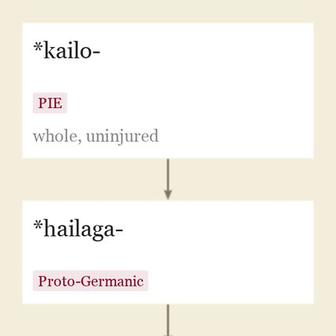holily adv.
c. 1200, from holy (adj.) + -ly (2).
Entries linking to holily

Old English halig "
The primary (pre-Christian) meaning is not possible to determine, but probably it was "
Holy is stronger and more absolute than any word of cognate meaning. That which is sacred may derive its sanction from man ; that which is holy has its sanctity directly from God or as connected with him. Hence we speak of the Holy Bible, and the sacred writings of the Hindus. He who is holy is absolutely or essentially free from sin; sacred is not a word of personal character. The opposite of holy is sinful or wicked; that of sacred is secular, profane, or common. [Century Dictionary, 1895]
Holy has been used as an intensifying word from 1837; in expletives since 1880s (such as holy smoke, 1883, holy mackerel, 1876, holy cow, 1914, holy moly etc.), most of them euphemisms for holy Christ or holy Moses. Holy Ghost was in Old English (in Middle English often written as one word). Holy League is used of various European alliances; the Holy Alliance was that formed personally by the sovereigns of Russia, Austria, and Prussia in 1815; it ended in 1830.
common adverbial suffix, forming from adjectives adverbs signifying "
Weekley notes as "
updated on August 03, 2015